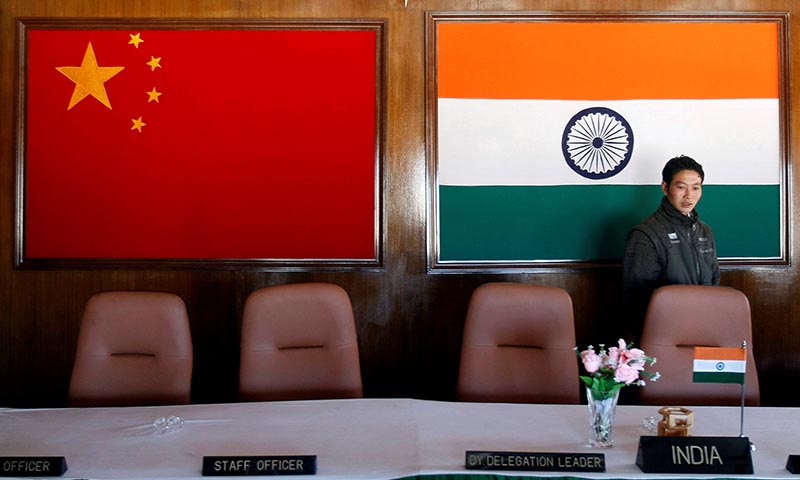India's new FDI rules may open new flashpoint with China
- China says new rules violate WTO principles
- China says new rules discriminatory, against free and fair trade
- China hopes India will revise its policy
- India increased scrutiny of FDI from neighbouring countries
NEW DELHI: India's new rules for foreign investment violate WTO principles of non-discrimination and are against free and fair trade, a Chinese embassy spokesperson said on Monday, potentially opening a new flashpoint in their uneasy ties.
On Saturday, India stepped up scrutiny of investments from companies based in neighbouring countries, in what is widely seen as a move to stave off takeovers by Chinese firms during the coronavirus outbreak. The changes to federal rules on investment were meant to curb opportunistic takeovers and acquisitions, the government said, but it did not mention China in its new policy statement.
In a global rout triggered by the fast spreading outbreak and the imposition of domestic lockdown measures, Indian stock markets have fallen 25% since Feb. 15, wiping out tens of billions of dollars of value.
"The impact of the policy on Chinese investors is clear," Ji Rong, a spokesman at the Chinese embassy in New Delhi, said in a statement.
As of December 2019, China’s cumulative investment in India has exceeded $8 billion, far more than the total investments of India’s other border-sharing countries, the statement said.
The move could set back a recent attempt by Prime Minister Narendra Modi and President Xi Jinping to improve ties between the two countries, which fought a war over border issues in 1962.
Xi visited India last October and was given a grand reception, which was seen as a sign the two countries were paving the way for a new trade and strategic relationship.
Embassy spokesman Rong said China hopes India will revise 'discriminatory practices' and treat investments from different countries equally.
Some experts said that the move could hurt the trade relationship between the two countries as it is clear that the new policy is directed towards Chinese investment.
"It appears that the government feels that if China’s money-pumping goes unchecked, it could have drastic impact on ownership of assets in the country," said Nikhil Narendran, partner in Trilegal.
Other countries such as Australia and Germany have made similar moves. Australia has said all foreign investment proposals will be assessed by a review board during the coronavirus crisis to prevent a fire sale of distressed corporate assets.
"This will definitely have trade implications," Narendran said, adding it could also make it harder for Indian start-up firms to raise money.






